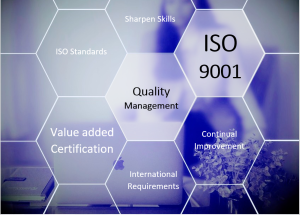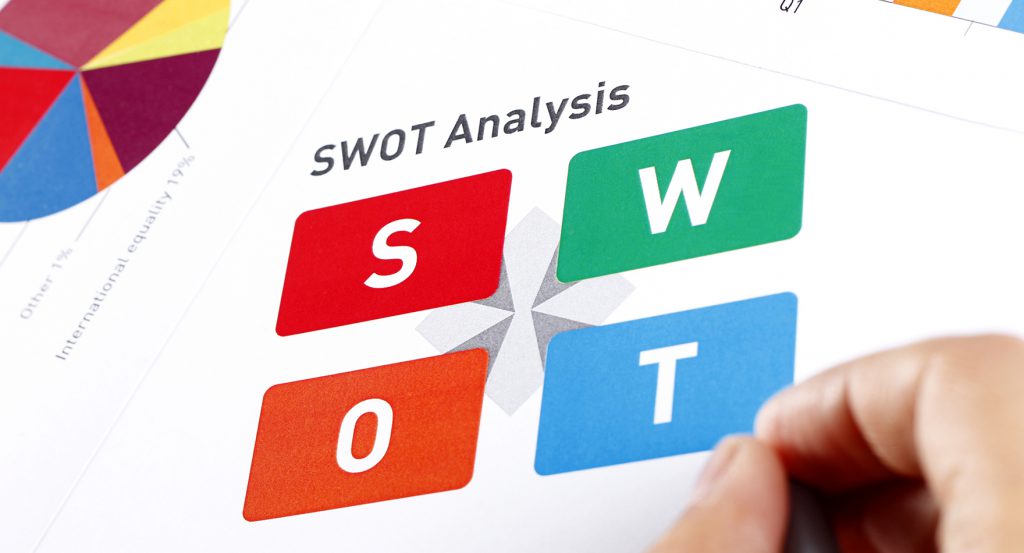
ISO 9001: Elevating Excellence in Quality Management
Quality Management ISO 9001 is an internationally recognized standard that plays a vital role in elevating excellence in quality management. In today’s highly competitive business
AKAP Accreditation Organization

ISO 9001 is an internationally recognized standard that plays a vital role in elevating excellence in quality management. In today’s highly competitive business landscape, organizations strive to deliver products and services that not only meet customer expectations but exceed them. ISO 9001 provides a comprehensive framework for establishing a robust quality management system (QMS) that enables organizations to consistently achieve superior quality, drive continuous improvement, and ensure customer satisfaction.

The Significance of ISO 9001: ISO 9001 holds immense significance as a benchmark for quality management. It serves as a foundation for organizations to establish a customer-centric approach, emphasizing the importance of understanding customer needs, enhancing processes, and continuously improving product and service quality. By adhering to ISO 9001 requirements, organizations gain a competitive edge in the market and enhance their reputation for delivering excellence.
Core Principles of ISO 9001: ISO 9001 revolves around core principles that guide organizations towards excellence in quality management. These principles include a strong focus on customer satisfaction, a process-oriented approach, engagement of people at all levels, evidence-based decision making, continual improvement, and a systematic approach to management. By embracing these principles, organizations create a culture of quality, efficiency, and innovation.
Implementation of ISO 9001: Implementing ISO 9001 requires a systematic and well-planned approach. It begins with a thorough understanding of the standard’s requirements and aligning them with the organization’s specific context and objectives. Organizations need to define processes, establish clear roles and responsibilities, set measurable quality objectives, and implement effective monitoring and measurement mechanisms. The implementation process involves engaging employees, providing adequate training, and fostering a culture of quality throughout the organization.
Benefits of ISO 9001: ISO 9001 brings numerous benefits to organizations that go beyond mere compliance. These benefits include improved customer satisfaction, enhanced operational efficiency, reduced costs, minimized risks, increased market opportunities, better decision-making based on data-driven insights, and a strong foundation for sustainable growth. ISO 9001 certification also demonstrates a commitment to quality and reliability, instilling confidence in customers, stakeholders, and business partners.
Continuous Improvement and ISO 9001: A key aspect of ISO 9001 is the emphasis on continual improvement. The standard encourages organizations to regularly evaluate their performance, identify areas for enhancement, and implement appropriate corrective and preventive actions. By adopting a continuous improvement mindset, organizations can foster a culture of innovation, agility, and adaptability, staying ahead in a rapidly evolving business landscape.
ISO 9001: A Global Recognition: ISO 9001 certification holds global recognition and demonstrates an organization’s commitment to meeting international standards of quality management. It opens doors to new business opportunities, both domestically and internationally, by showcasing an organization’s ability to consistently deliver high-quality products and services. ISO 9001-certified organizations gain a competitive advantage, build trust with customers and partners, and enhance their overall reputation in the marketplace.
Conclusion: ISO 9001 serves as a guiding force in elevating excellence in quality management. By implementing and adhering to its principles, organizations can achieve superior quality, enhance customer satisfaction, and drive continuous improvement. ISO 9001 certification not only brings tangible benefits but also demonstrates a commitment to excellence and sets organizations apart in today’s competitive marketplace. Embrace ISO 9001, embark on a journey of continuous improvement, and unlock the full potential of quality management in your organization.

The Significance of ISO 9001: ISO 9001 holds immense significance as a benchmark for quality management. It serves as a foundation for organizations to establish a customer-centric approach, emphasizing the importance of understanding customer needs, enhancing processes, and continuously improving product and service quality. By adhering to ISO 9001 requirements, organizations gain a competitive edge in the market and enhance their reputation for delivering excellence.

Quality Management ISO 9001 is an internationally recognized standard that plays a vital role in elevating excellence in quality management. In today’s highly competitive business

What does SWOT stand for? SWOT stands for Strengths, Weaknesses, Opportunities, and Threats, and so a SWOT Analysis is a technique for assessing these four aspects of your